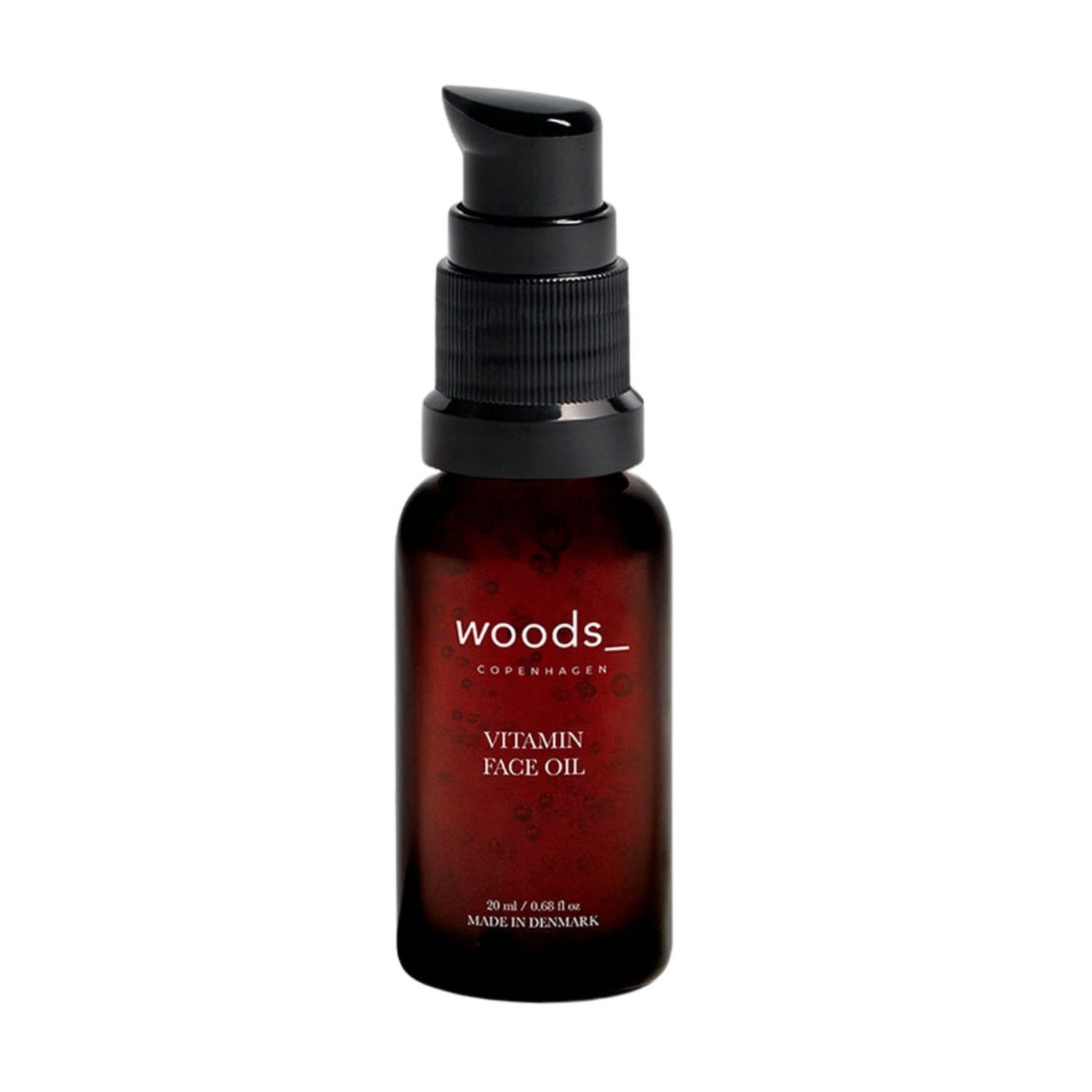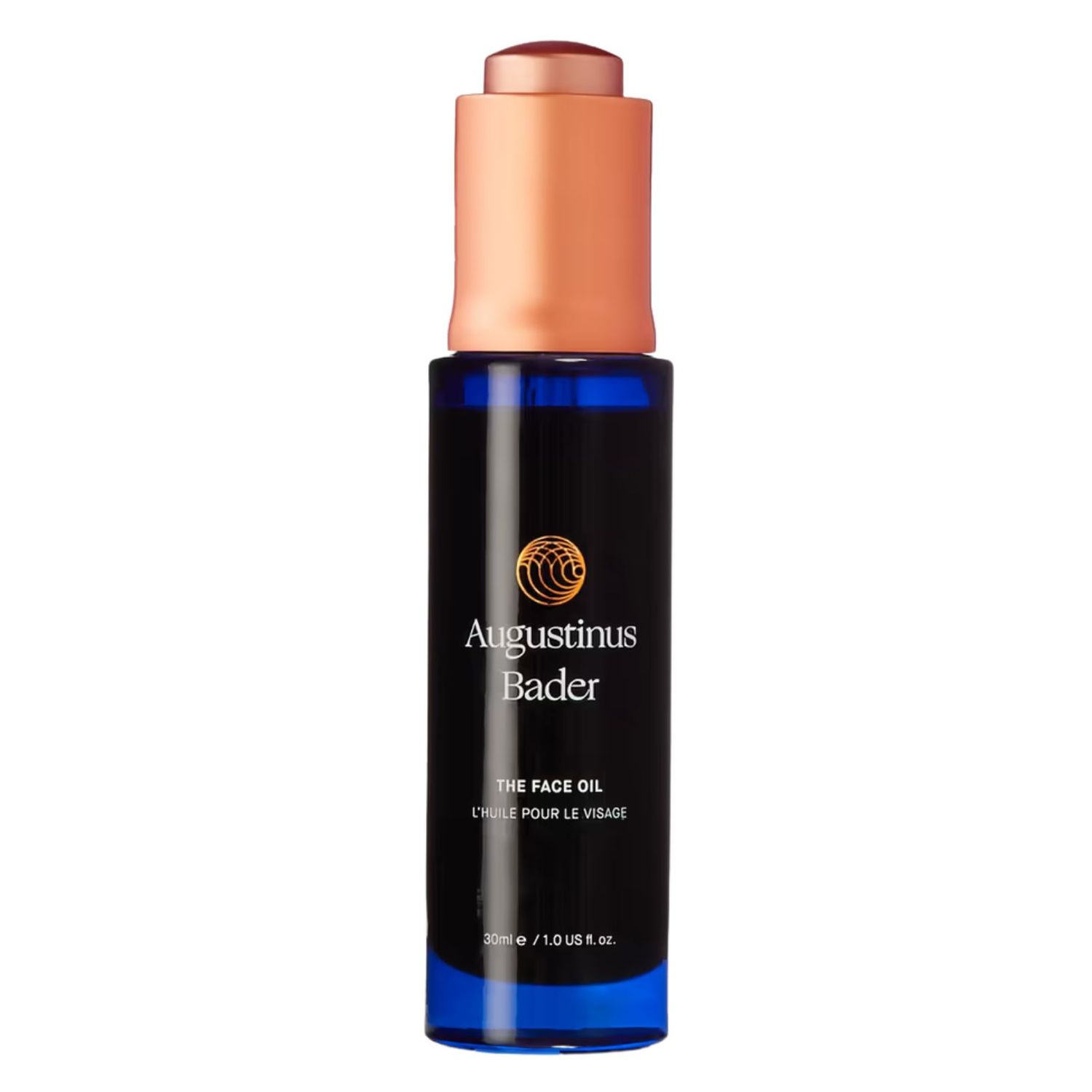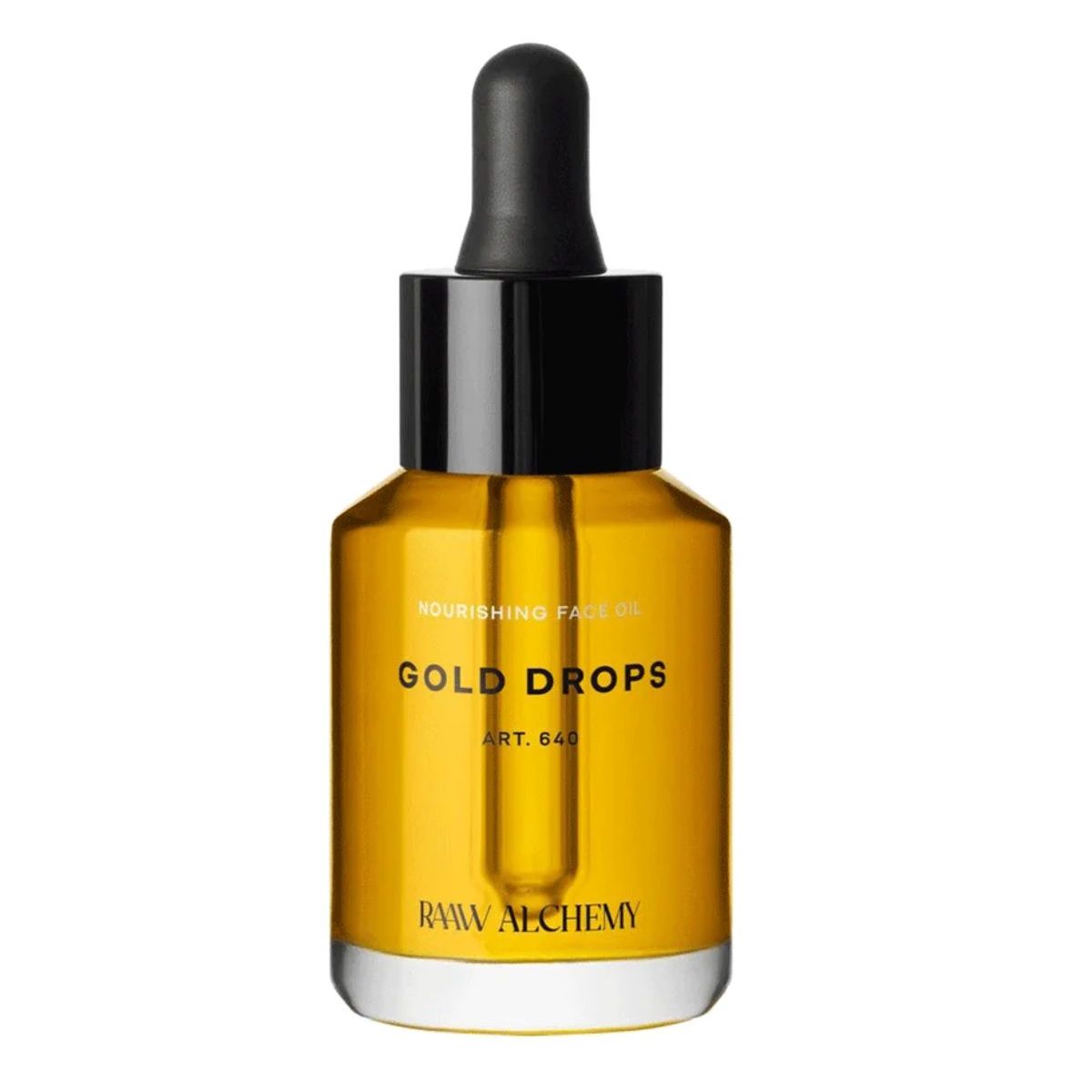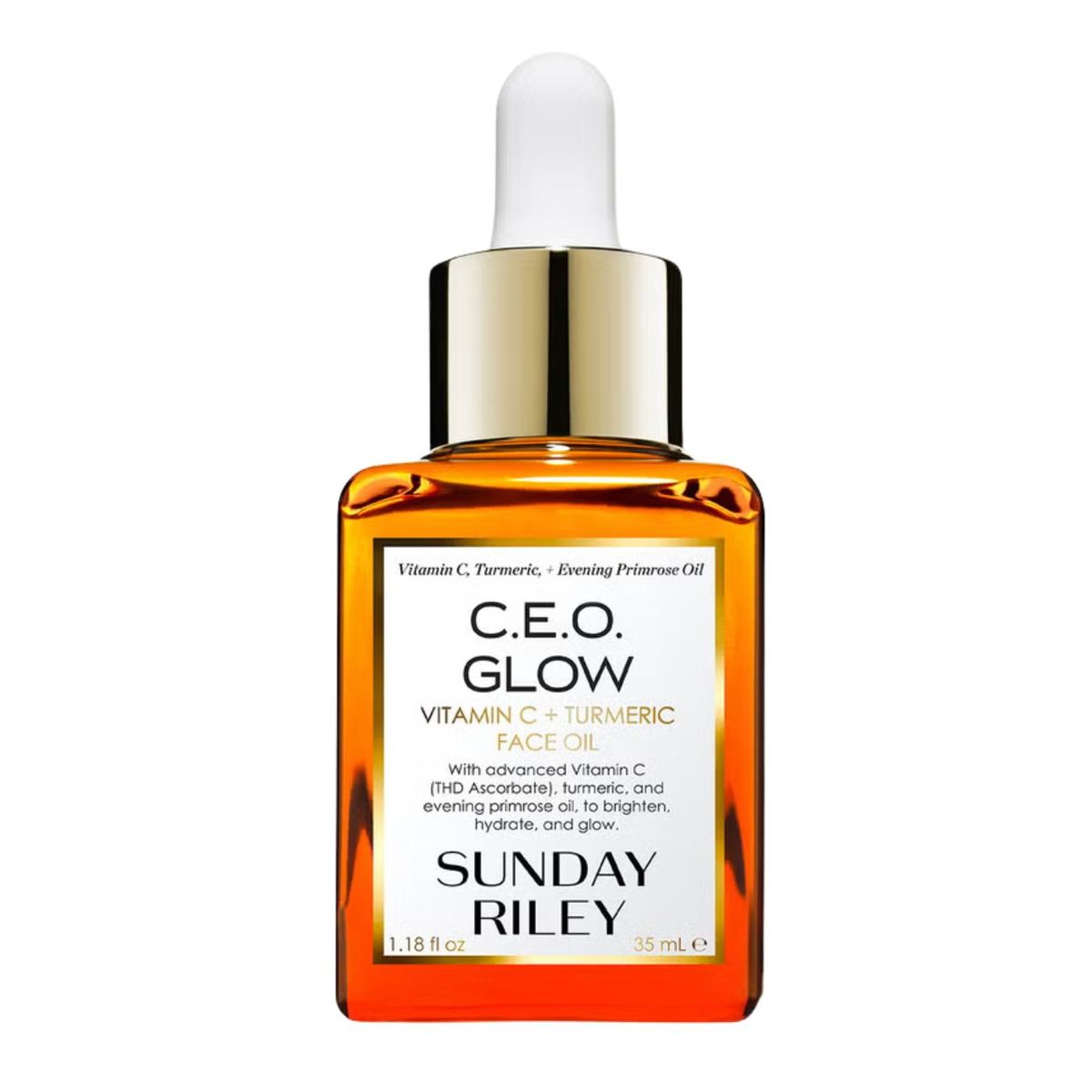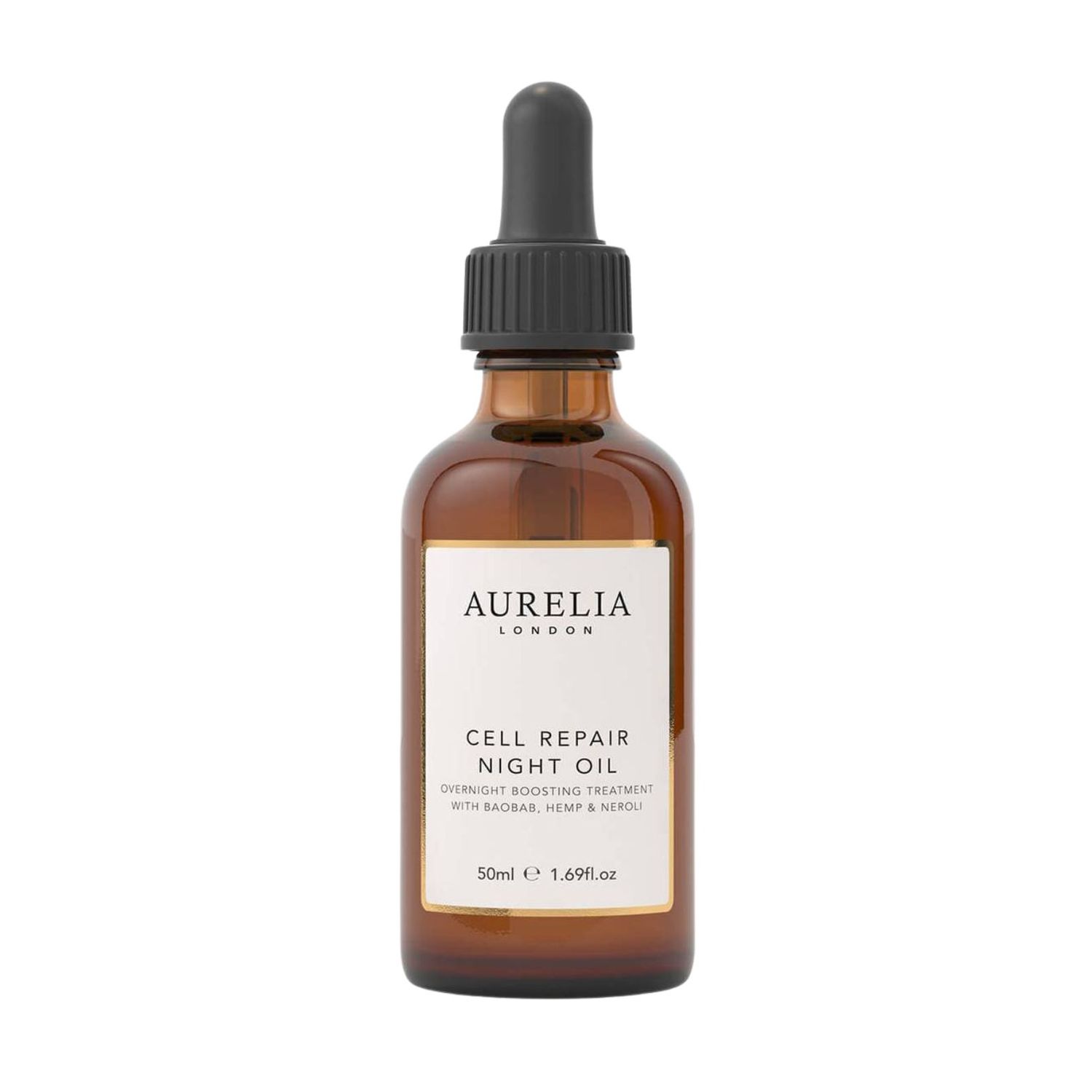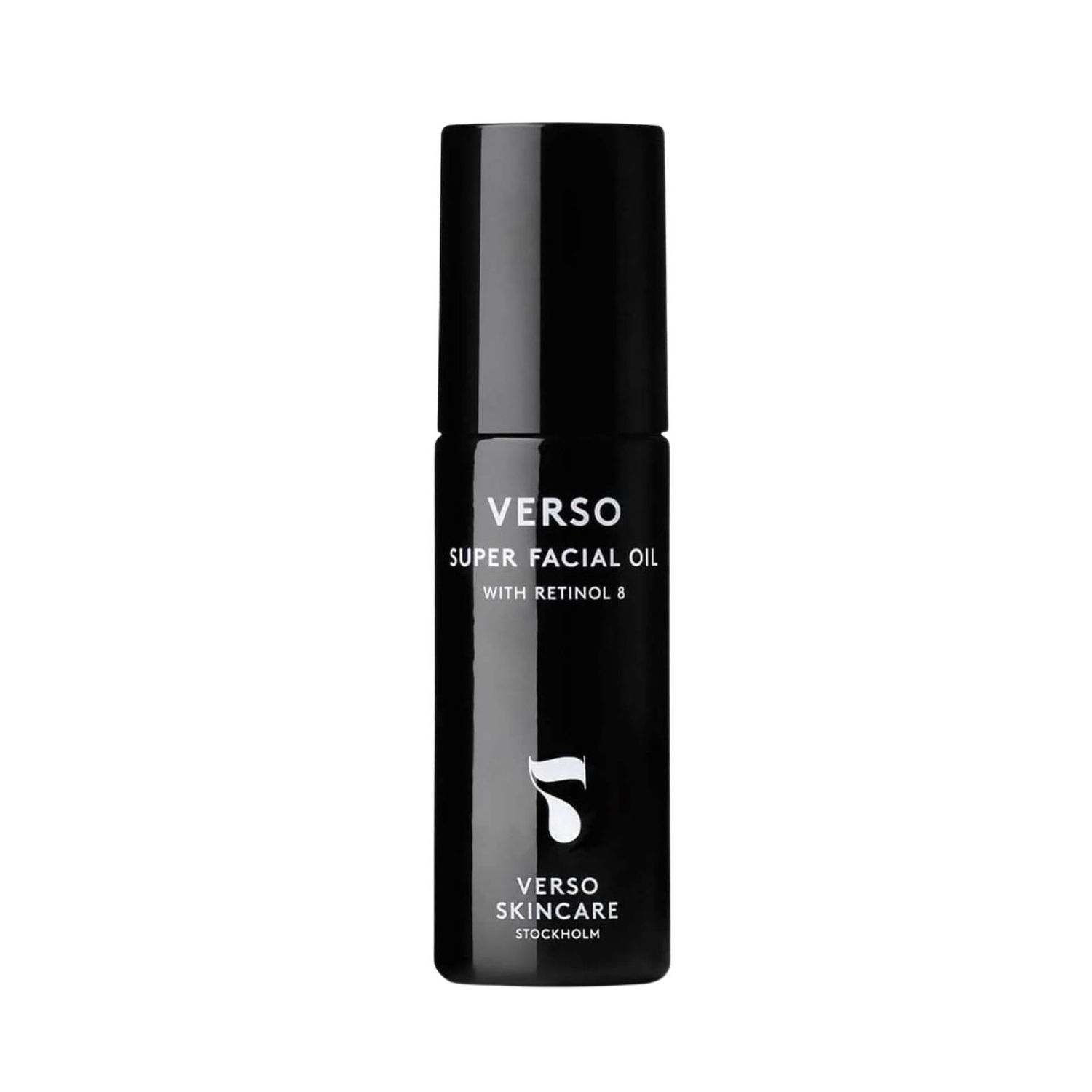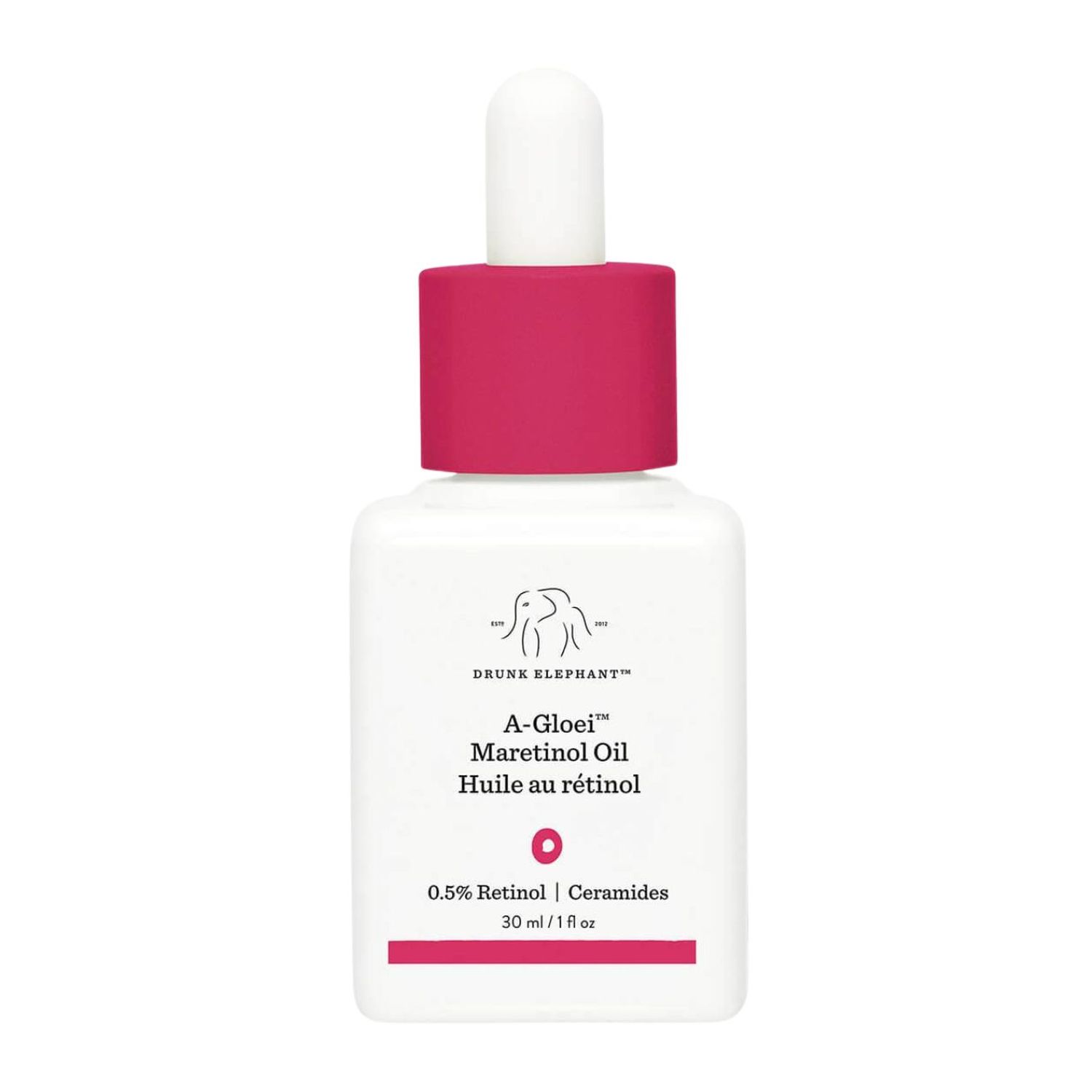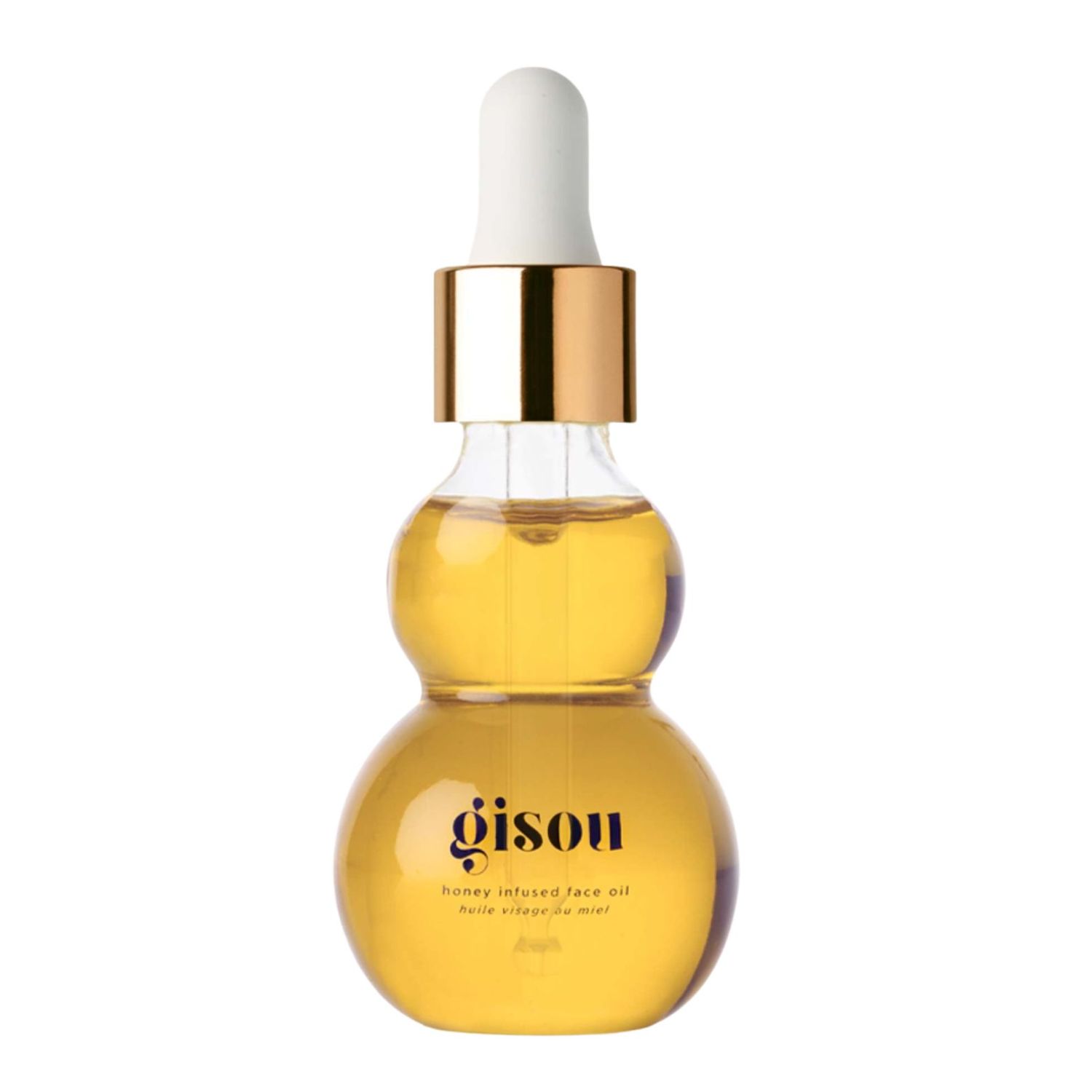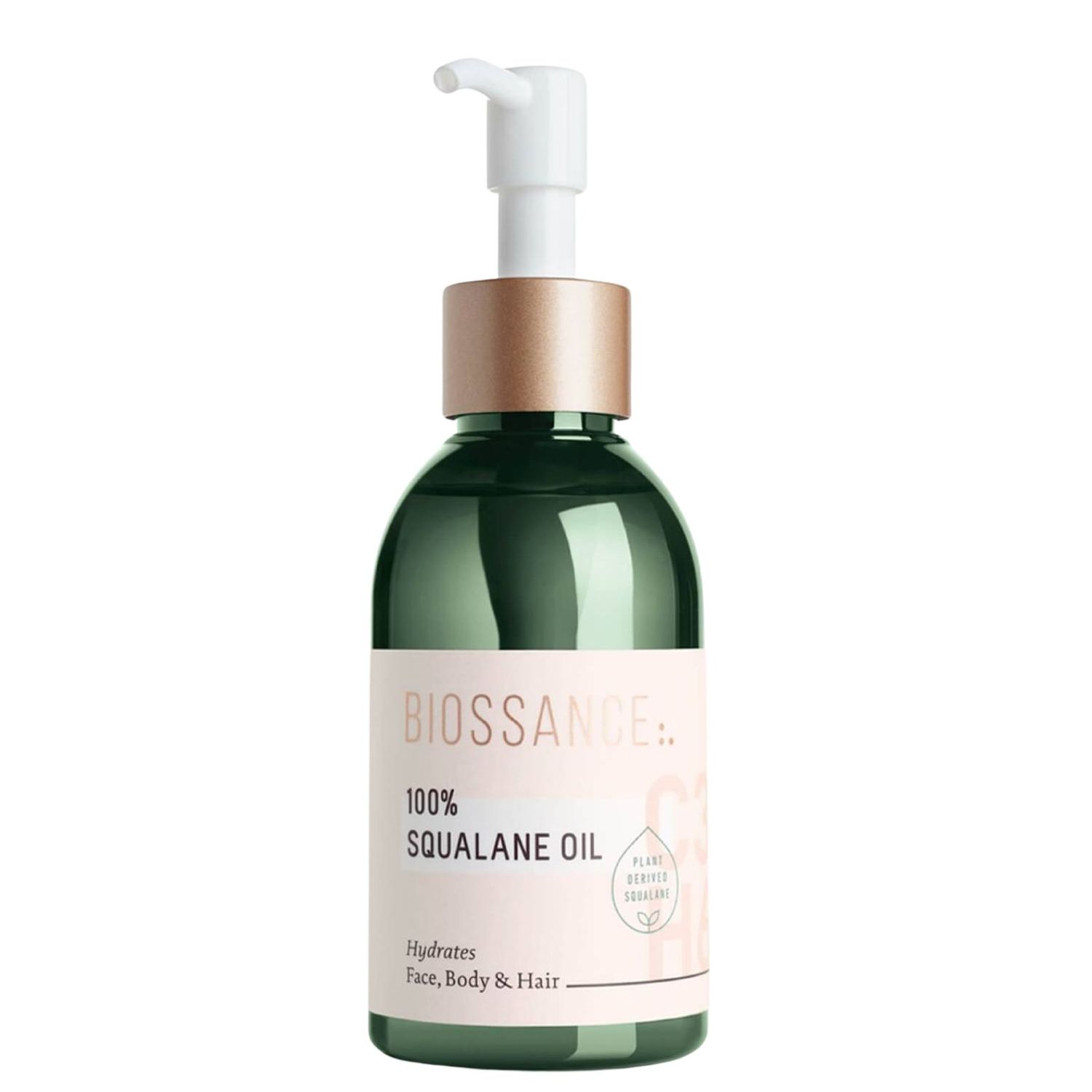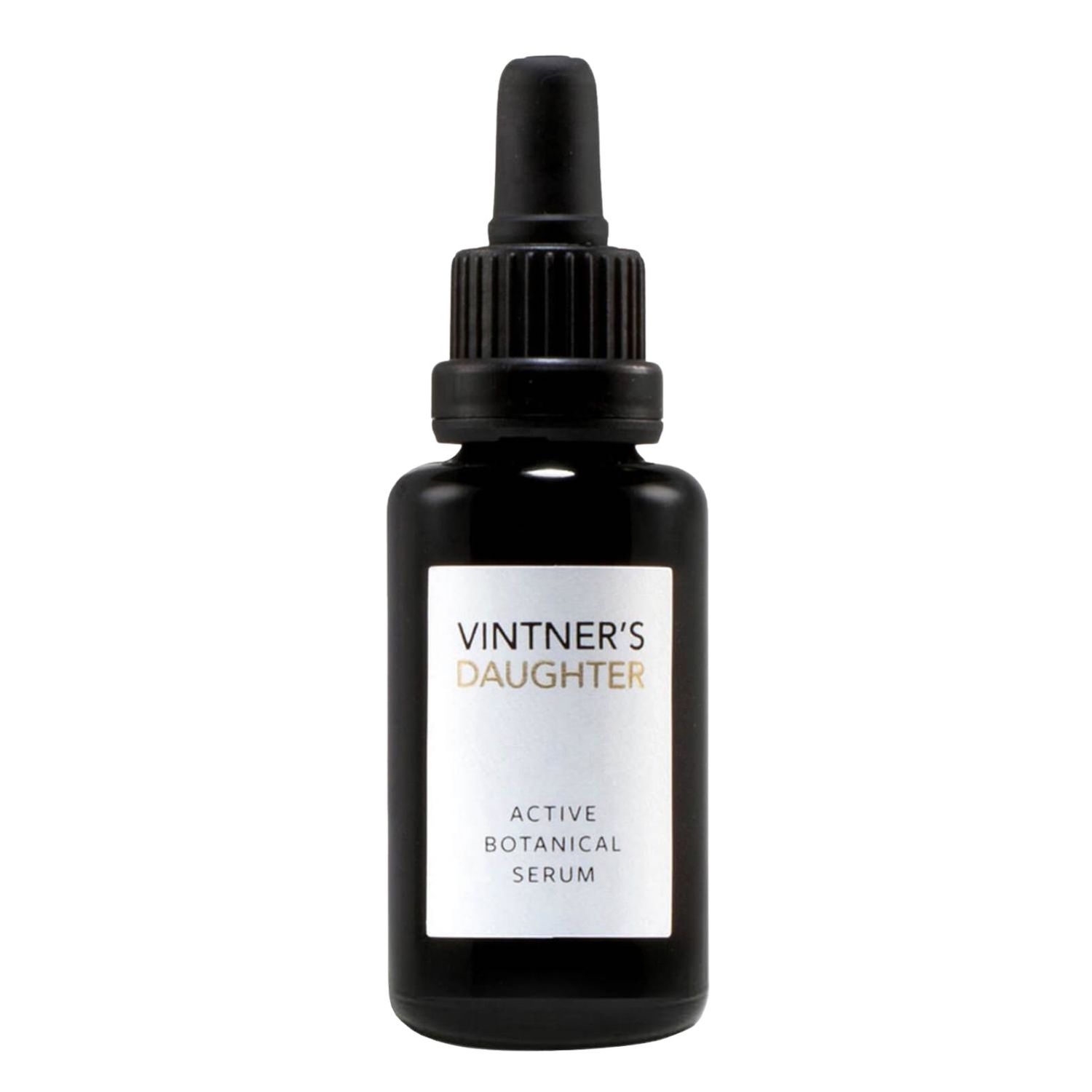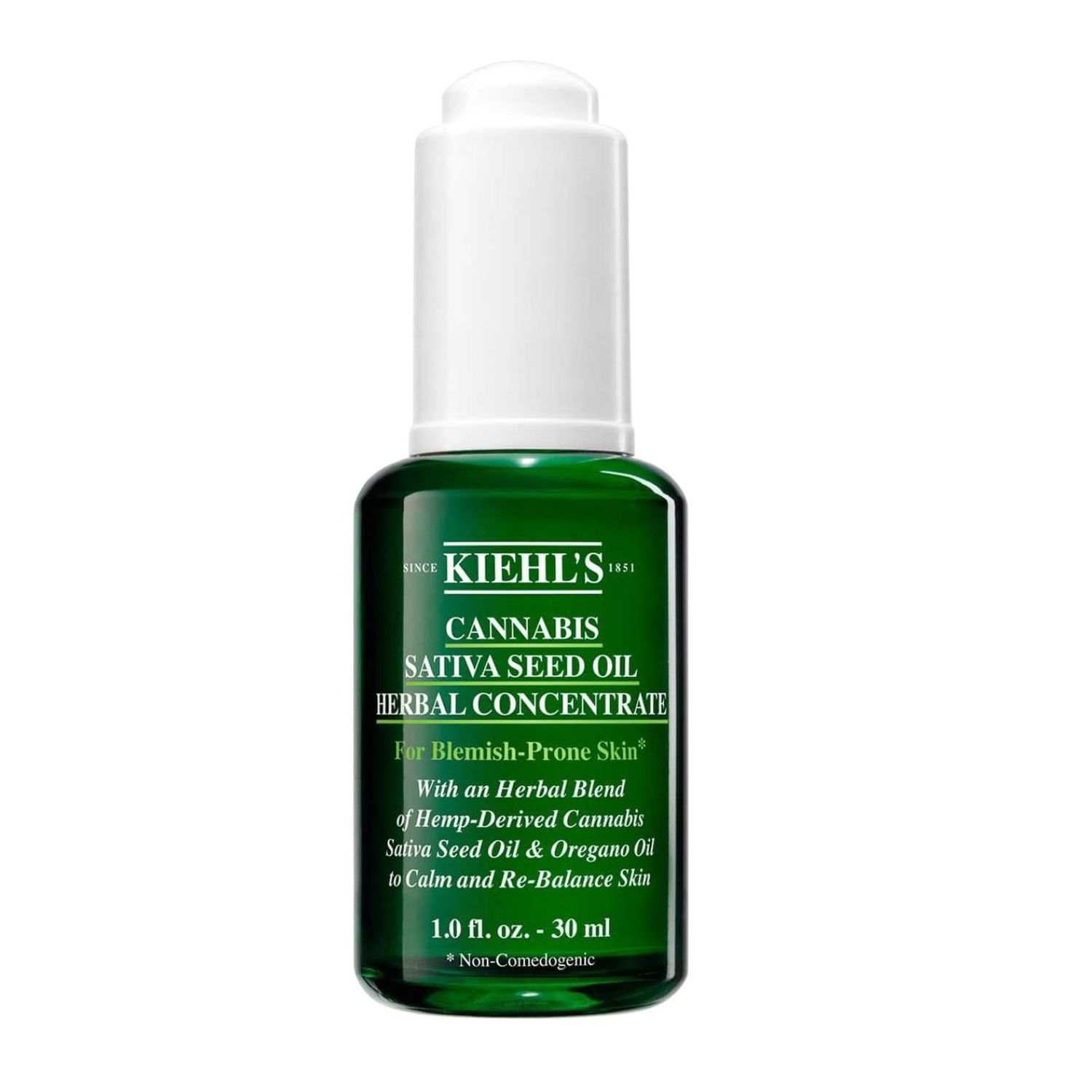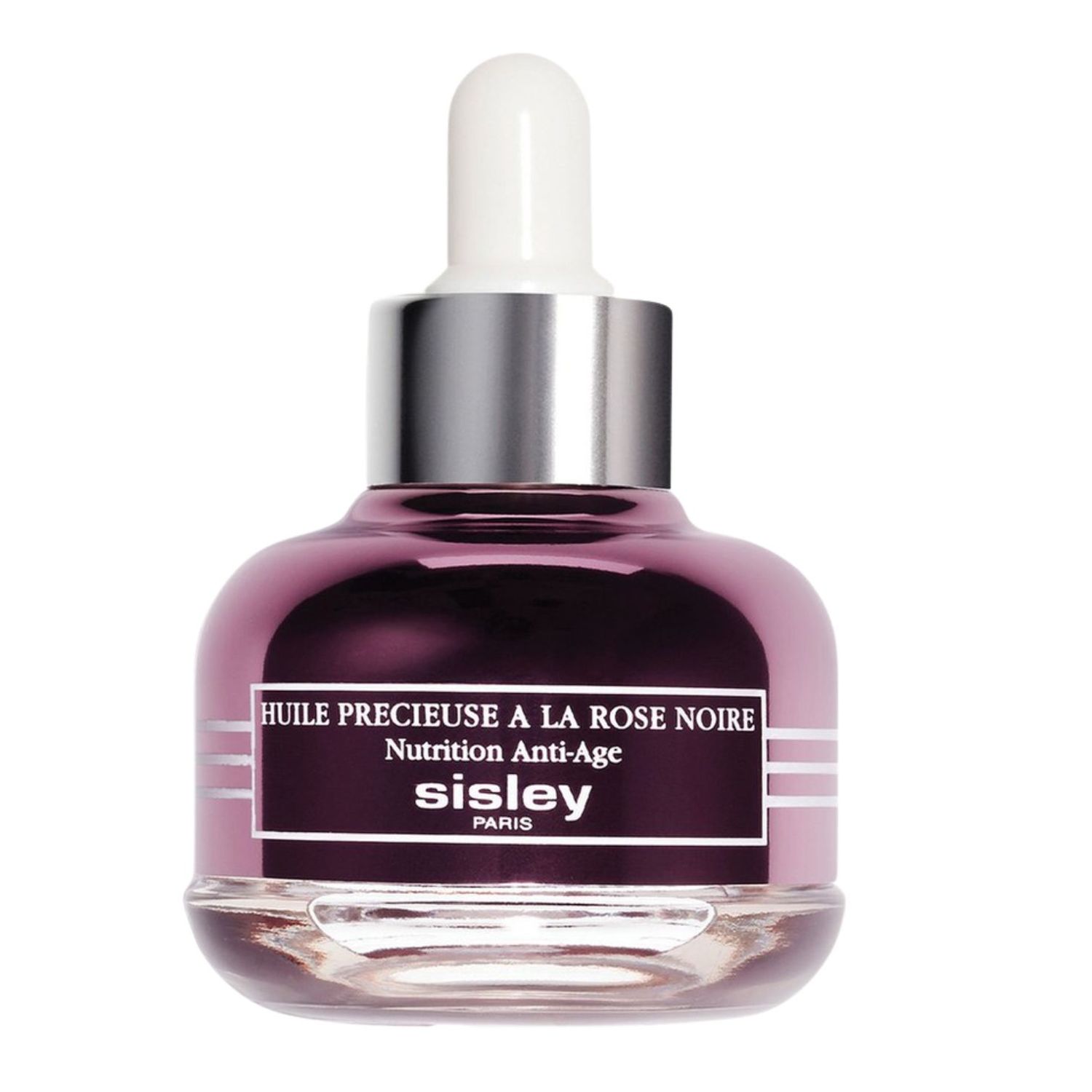Punishing winter temperatures aren't the only thing to leave skin feeling papery. UV rays can also deplete skin's moisture reserves, which is where a facial oil steps in. Below, your need-to-know on how to correctly incorporate them into your beauty routine and our best picks for the facial oils to buy now
All products featured on Vogue are independently selected by our beauty editors. However, when you buy something through our retail links, we may earn an affiliate commission.
The best facial oils are deemed so precious they’re decanted by the drop onto moisture-starved skin. However, the ability of these golden elixirs to lock in hydration relies on correct application.
“Face oils are occlusive ingredients that create a physical barrier to trap moisture,” says Martin Lyne, founder of Woods Copenhagen. For this reason, they should always be applied at night over serum and moisturiser as the last step in your routine. “When it comes to layering, it’s moisturiser first, facial oil second,” says Lyne. “Face oils are composed of large molecules so they are only able to reach the outermost layer of skin," he adds. "If you apply a face oil as one of the first steps in your routine, the skincare that follows won’t be able to penetrate the oil barrier.”
Once on the skin, their benefits are two-fold. Facial oils drip-feed fatty acids, vitamins and potent antioxidants into the topmost layer to soften, brighten and trigger repair. Lest your skincare feels too functional, an oil's botanical scent will soothe away anxiety when we crave calm.
Read on for the best facial oils for all skin types and concerns.
Melanin-rich skin typically has fewer natural moisture-trapping ceramides, which is why it can often feel scaly and parched. This 100 per cent natural oil is packed with replenishing argan oil and cloudberry to improve elasticity, deliver a mega-dose of brightening vitamin C and strengthen the skin’s protective barrier.
Considered the OG of facial oils, this blend is charged with cold-pressed grape seed oil and babassu oil alongside Professor Bader's signature TCF8 complex. A souped up mixture of vitamins, synthesised molecules and amino acids activate stem cells, boosting them into healing mode in order to repair the signs of ageing.
There are three standout oils in this blend. Tamanu oil contains anti-inflammatory, antibiotic, and antioxidant properties, making it particularly well-suited for sensitive skin or for helping to heal scars. The addition of rosehip seed and seabuckthorn oils, both considered nature's retinol, further helps to regenerate skin cells, repair damaged tissue, and reduce the appearance of fine lines.
It's hardly surprising that this face oil from Sunday Riley has gained cult-favorite status. This super-charged blend features advanced vitamin C, known as 5 THD ascorbate, which visibly brightens the complexion, reduces the appearance of dark spots, and firms fine lines and wrinkles. Turmeric further enhances the skin's glow, while evening primrose strengthens the skin barrier. Additionally, this potion is enriched with soothing ginger root extract and hydrating red raspberry oil.
Those who have overdone it in the sun or with an overzealous skincare routine will love slathering on the omega-rich plant and nut oils to seal in hydration while a blend of calming essential oils (think neroli, lavender and rose) slow down your breathing and send you to sleep within minutes.
Retinol, beauty's much-lauded wrinkle-fighting ingredient, doesn't just come in a cream formula. In fact, because retinol is fat-soluble, "an oil formula is a great carrier to deliver retinol into the skin," explains Verso founder Lars Fredriksson. Also interesting: retinol retains its stability in an oil, requiring fewer ingredients to prevent irritation. This Verso face oil contains the Retinol 8 ingredient, a stabilised vitamin A combination that's eight times more effective than traditional retinol but much gentler. Moreover, the formulation includes nourishing and moisturising sunflower and rapeseed oils, which soften the skin and reduce temporary redness or irritation caused by environmental stress.
Drunk Elephant's Marula Oil is undoubtedly one of the brand's bestsellers. But even icons need to be reinvented to stay relevant. Now a low dose of retinol has been added to the moisture-packed marula oil– hence the "Maretinol" moniker – so you get the benefit of this line-smoothing active without the downsides of flaking, redness or irritation. The addition of only three other ingredients – ceramides, soy been oil and antioxidant vitamin E – makes this a skincare minimalist's dream product.
Despite being an age-old skincare ingredient, honey is experiencing a renaissance right now. This isn't surprising, given its deep hydrating properties. In this award-winning oil by Gisou, the star ingredient is home-grown Mirsalehi honey, complemented by over 95 percent natural cold-pressed botanical oils, such as evening primrose and grapeseed oils. Together, they deeply nourish, even out skin tone, and reinforce the delicate skin barrier.
Squalane is an oily liquid that is already present in the skin's sebum. So applying a generous layer of this intensely hydrating, bio-identical oil means the skin immediately recognises it and knows exactly where to deploy it. Expect softer, plumper skin, free of any dehydration lines, by morning.
When winery owner April Gargiulo became increasingly concerned with the high levels of ‘fillers’ in her skincare she embarked on a two-year journey to create an oil-serum hybrid featuring 22 of the world’s most active organic botanicals – from grape seed and hazelnut to bergamot and avocado oils. It works on multiple skin concerns, including loss of elasticity, fine lines and hyperpigmentation.
If you thought applying facial oil to oily, congested skin was counterintuitive, think again. The scientists at Kiehl's have formulated a blend using hemp seed oil, a well-known anti-inflammatory, mixed with green oregano oil, traditionally used as an antiseptic to keep breakouts at bay. Additionally, this oil helps reduce redness, soothes the skin, and strengthens the skin barrier.
Yes, this deeply nourishing oil is at the top end of the market, but its high concentration of plum and camellia oils, omega 3 and 6, and the highest quality rosa damascena flower oil is guaranteed to leave your skin with an unparalleled radiant glow. An investment your skin will thank you for, this oil also works wonders on dry and mature skin, plumping, nourishing, and evening out the complexion for a more youthful appearance.
What are the best oils for your face?
As highlighted in this article, various oils can work wonders for our skin. Many facial oils on the market, like the ones featured above, combine different ingredients to address multiple skin concerns and types. Popular facial oils include rosehip seed oil, marula oil, tamanu oil, sea buckthorn oil, retinol oil, and squalane oil. These ingredients offer a variety of benefits, from fighting the signs of ageing and protecting the skin barrier to reducing redness and acne and plumping the skin.
For instance, squalane is an excellent moisturiser for sensitive and dry skin. Additionally, rosehip seed oil is rich in essential fatty acids and vitamins, which help rejuvenate and repair the skin. In contrast, sea buckthorn oil is known for its anti-inflammatory and antioxidant properties. Retinol, a form of vitamin A, is celebrated for boosting collagen production and accelerating cell turnover, making it a powerful anti-ageing and acne-fighting ingredient.
Can facial oil replace moisturiser?
While some facial oils, such as squalane and evening primrose, are excellent for hydrating a thirsty, papery complexion, depending on your skin type, they might not be enough to replace a traditional moisturiser entirely. Facial oils provide an occlusive layer that helps lock in moisture but may not offer the same hydration level as conventional moisturisers.
Moisturisers typically contain humectants like hyaluronic acid and glycerin, which draw moisture into the skin, and emollients that soften and smooth the skin. These ingredients work together to hydrate the deeper layers of the skin, something that oils alone might not achieve.
Consider incorporating both products into your evening routine for optimal hydration, especially if you have dry or dehydrated skin. Apply your moisturiser first to hydrate your skin, then follow with a facial oil to seal in the moisture and provide an additional layer of nourishment. Using a moisturiser and facial oil can also help address various skin concerns. While moisturisers focus on hydration and barrier support, facial oils can offer targeted benefits such as anti-ageing, soothing, and antioxidant protection.
How should I apply facial oil?
Facial oil should be the last step in your evening skincare routine. Apply it after your moisturiser to seal in hydration. If you use facial oil earlier, the products that follow won’t be able to penetrate the oil barrier, so it’s crucial to leave facial oil as the final step. A few drops are usually sufficient, and it’s advisable to gently pat the oil onto your skin rather than rubbing it. Focus on the areas you want to target with the oil and don’t forget to treat your neck and décolletage.
What are the benefits of using facial oils?
Facial oils can have multiple advantages, such as boosting glow, providing moisturisation and nourishment, offering anti-ageing effects, protecting the skin barrier, improving skin texture and tone, and soothing and calming the skin. Depending on your specific needs, different oils can yield various benefits. For instance, rosehip seed oil can help even out skin tone and reduce hyperpigmentation, while chamomile, jojoba, and calendula oils have anti-inflammatory properties that soothe irritated or sensitive skin, reduce redness, and calm inflammation.
If you’re unsure which oil best suits your skin type and concerns, consult with a dermatologist. Additionally, always perform a patch test before introducing a new oil into your routine to ensure it suits your skin.
What is the best facial oil for anti-ageing?
Many facial oils can help fight and prevent the signs of ageing. The most popular options include rosehip seed oil, marula oil, squalane oil, sea buckthorn oil, bakuchiol oil, and retinol oil. Each oil has unique properties that are beneficial for ageing skin. For instance, bakuchiol, a natural alternative to retinol, reduces fine lines, wrinkles, and hyperpigmentation without the irritation often associated with retinol. Meanwhile, marula oil, rich in antioxidants and omega fatty acids, boosts collagen production and improves skin firmness and elasticity. Choosing the best oil depends on your skin type, specific concerns, and personal preference.
Are facial oils good for oily skin?
Contrary to popular belief, facial oils can benefit oily skin, depending on the type of oil used. They can help balance sebum production, provide hydration without clogging pores, soothe irritation, reduce acne, and protect against environmental damage and free radicals that can worsen oily skin issues. Recommended oils for oily skin include grapeseed, squalane, rosehip seed, and hemp seed oil. However, it’s essential to avoid heavy, comedogenic oils like coconut oil, which can clog pores and exacerbate acne. Applying the oil in small amounts is advisable to prevent overloading the skin.

